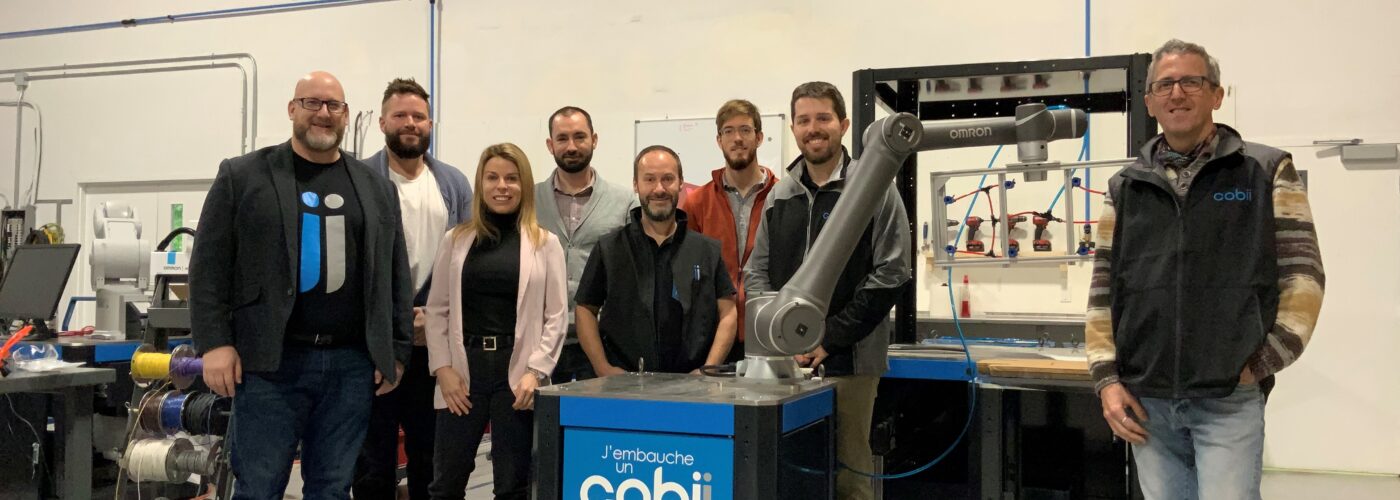News

2 February 2021
Robox develops an innovative business model, with collaborative robot-employees
PRESS RELEASE – The Sherbrooke business Robox, specialised in robotic equipment manufacturing, has developed a new innovative concept for manufacturing businesses that wish to automate part of their production: “hiring a collaborative robot-employee”.
Following this innovative business model, the robot-employee, called Cobii®, will be paid hourly, with no capital investment on the part of the business, which can implement this 4.0 resource on a casual or on a permanent basis.
The Cobii® designed by Robox are standard robotic cells adapted as needed to carry out repetitive tasks such as crating, sanding/polishing, pick and place, etc. Their integration is ensured by one of the group’s businesses, effman, which delivers engineering services.
“With our Cobii® robot-employee squad, we aim to solve labour shortage for that type of jobs, but also to increase productivity and product quality, in close collaboration with the employees. Humans teaming up with machines is the key to succeed and reach growth objectives rapidly, said Stéphane Tanguay, Associate at Robox. In the end, we wish to transform the way small- and medium-sized businesses work by fast tracking automation and the 4.0 industry.”
The young Sherbrooke business was created in 2019 and has 12 employees as well as two interns every year. It has benefited, among others, from the strategic and financial support of Sherbrooke Innopole, through the Local Investment Fund (FLI) to achieve its development projects.
This financing, combined with that of private investors, has allowed Robox and effman to collaborate with the Sherbrooke business The Color Group in converting their plant to produce disinfecting gel during the first wave of the COVID-19, in the spring of 2020. Robox was able to assign technical resources to that project, develop a financial model, and run the first performance tests. Within days, the team integrated two robot-employees to the existing equipment in the plant, thus increasing and stabilising the production capacity for the new product.
“The industrial robotic sector has a promising future and the needs for these types of innovations are growing all around the world. We are happy to have supported Robox from the very beginning of this venture. We quickly realised the potential of robotic cells and the employee-robot concept the company developed to facilitate the implementation of the 4.0 industry among manufacturing businesses”, said Marc-Henri Faure, Director, Business Services – Information Technologies, at Sherbrooke Innopole.
Sources: Robox and Sherbrooke Innopole
Back to the news